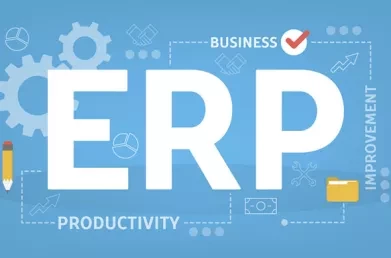5 Challenges when Testing in ERP Projects
Many organisations approach an ERP project with the objective of implementing a “vanilla” solution with little or no customisation. That approach certainly reduces risk, but it does not remove the need to thoroughly test the system. Even if the system is not customised, it is generally configured to map to highly integrated and often complex business processes. Each configured ERP application is unique; therefore, each system must be tested thoroughly before going live.
In the past, organisations tried to reduce the risks associated with the introduction of a new ERP by running the legacy and new system in parallel for a period of time, reconciling the outputs from both on a regular basis. This practice usually created more problems than it solved. Users had to do their work twice, often using different business processes, and this caused errors. A lot of time was spent reconciling the two systems instead of focusing on making sure the new ERP worked properly.
It is now accepted that meticulous testing before go-live is the best way to reduce risk. Testing is a key factor in a successful implementation and the ultimate responsibility for testing resides with the organisation implementing the ERP system and not the ERP provider. Successful testing requires careful planning and management by an experienced ERP project manager as it poses a number of challenges. I’ve described some of those below, and in my follow up article 4 Recommendations for Successful ERP Testing, I make some recommendations on how they might be addressed.
ERP Testing Challenges
Challenge 1 – Allocating time for testing
How much time and effort is required to adequately test an ERP system? When planning an ERP implementation, the starting point is often a timeline provided by the ERP vendor/system integrator containing the key implementation tasks and dates. This is often a good basis for planning, but it will naturally focus on the tasks where the vendor has responsibility. While it will factor in time for testing, the first challenge is to assess this to ensure all testing activities are included and that the time allocated is adequate.
Challenge 2 – Knowing what to test
Because ERP is so far-reaching, it can be difficult to make sure all relevant functionality and business scenarios are identified and then tested. The need to test custom developments is obvious, but what else needs to be considered? How do you ensure your test scope is comprehensive and yet not so broad that it will consume too much time and resource?
Challenge 3 – Testing across functional areas
One thing that makes ERP different from other software is that it is an integrated solution that touches on many areas of a business. A configuration change in one functional area can impact many others and the business processes supported by ERP usually run across multiple functional areas. Ensuring end-to-end processes are adequately tested is a key challenge.
Challenge 4 – Selecting the test team
Identifying the people who can manage and perform testing is often difficult. On the one hand, subject matter experts from the business are best placed to determine if the new ERP meets expectations. On the other hand, not all of these people will have the skills or the time to methodically test the new solution. Also, it’s often hard to decide whether a dedicated test manager will be required.
Challenge 5 – Managing and tracking test results
The effective tracking and management of test results is often a significant challenge, particularly if the ERP vendor/system integrator does not provide a tool to help with this. Any tool deployed for this needs to be simple to use and should allow multiple users to enter results simultaneously. It is also key to ensure that test reporting allows for more than simple tracking of pass/fail rates. For example, for tests that fail, recording how long they have been in rework or categorising the seriousness of the issues can be vital to effective test management.
This blog was written by Ursula Browne, Managing Partner at Lumenia. For further information please send an email to Ursula Browne.



